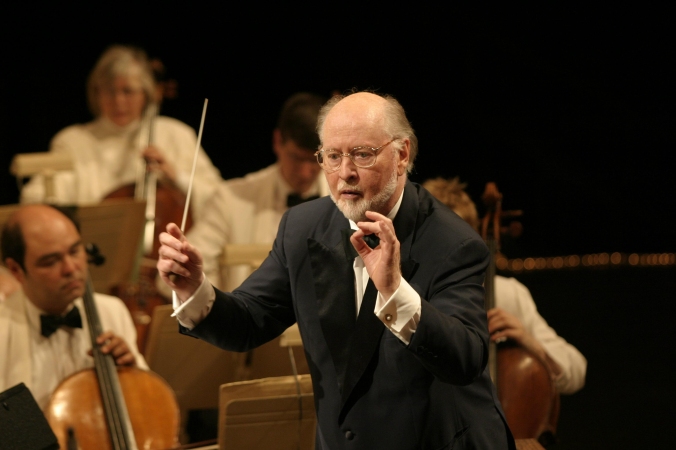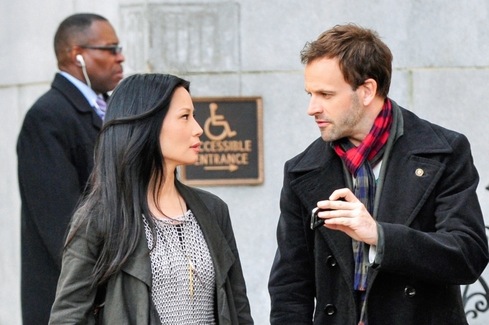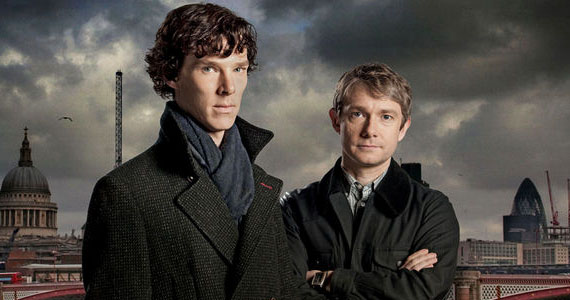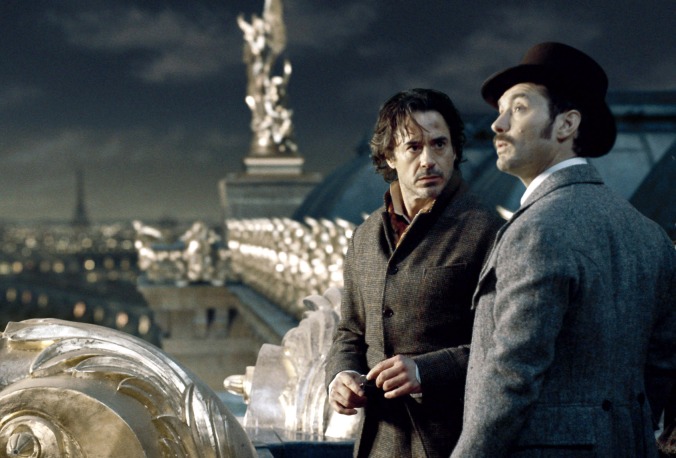 Alfonso Cuarón’s astronaut thriller “Gravity” has proven to be a hit with both fans and critics, pulling in almost as much revenue its second weekend as it did its first. The film has breathtaking special effects and a moving performance by Sandra Bullock, but a factor that deserves just as much praise is the film’s soundtrack. Although movie music typically doesn’t get as much attention as the actors, the director, the special effects, etc., most great movies wouldn’t be great without a distinctive musical score to help set the tone. “Gravity’s” soundtrack is tense and eerie, pulling in the audience and turning the film into an even more nerve-wracking experience.
Alfonso Cuarón’s astronaut thriller “Gravity” has proven to be a hit with both fans and critics, pulling in almost as much revenue its second weekend as it did its first. The film has breathtaking special effects and a moving performance by Sandra Bullock, but a factor that deserves just as much praise is the film’s soundtrack. Although movie music typically doesn’t get as much attention as the actors, the director, the special effects, etc., most great movies wouldn’t be great without a distinctive musical score to help set the tone. “Gravity’s” soundtrack is tense and eerie, pulling in the audience and turning the film into an even more nerve-wracking experience.
Great movie music blends so seamlessly with the images that we’re seeing onscreen that we almost don’t notice it in the background; and yet, if you stripped the music away, the film just wouldn’t have the same impact. James Bond just wouldn’t be James Bond without the series’ signature theme, and Howard Shore’s rich score made the “Lord of the Rings” films seem even more epic.
Here are some of my personal favorite film scores, and I’d love to hear what yours are, as well! 🙂
“Tron: Legacy”
Composed by Daft Punk
Disney’s “Tron” sequel may have been visually spectacular, but critics and fans seemed to agree the plot didn’t dazzle as much as the CGI did. While I was a bit disappointed in the film itself, I will always be grateful to the movie for introducing me to French electronic group Daft Punk. The music is the perfect compliment to the computer-themed visuals, smoothly blending techno and symphonic flavors. It wasn’t like any film soundtrack I’d ever heard before, and that made it feel fresh and exciting. Sometimes haunting, sometimes elegant, “Tron: Legacy” ranks among Daft Punk’s best work and is one of the best modern movie scores.
“Sherlock Holmes” (2009)
Composed by Hans Zimmer
Hans Zimmer is one of my favorite film score composers. I’ve enjoyed his work on the “Pirates of the Caribbean” series, his themes for Christopher Nolan’s “Batman” reboot (particularly his work on “The Dark Knight Rises”), and his main theme for this summer’s “Man of Steel.” However, one of his most unique scores is for the Robert Downey Jr./Jude Law “Sherlock Holmes” movie. The first time I heard the soundtrack, I didn’t even realize Zimmer had composed it, though when I listened more carefully, I picked up echoes of his style. The music is quirky and creative, using just slightly out-of-tune pianos and squeaky violins. It perfectly captures the spirit of Guy Ritchie’s touch-of-steampunk version of Sherlock Holmes.
“Star Trek” series (2009-2013)
Composed by Michael Giacchino
While I also loved Michael Giacchino’s jazzy score for the Pixar film “Ratatouille” and his re-imagining of the classic “Mission Impossible” theme for “Ghost Protocol,” perhaps my favorite is Giacchino’s work on J.J. Abrams’ “Star Trek” reboot series. Like the films, the music is bold and energizing (no pun intended). 😉 He combines themes from the TV series with original music, managing to pay homage to the work that came before him while also creating something refreshingly new. Some of the best pieces include the track “Enterprising Young Men” from the first film, as well as Khan’s eerily elegant theme from “Into Darkness.”
“Star Wars” saga (1977-2005)
Composed by John Williams
John Williams is arguably the greatest film score composer of our time, and he’s written countless themes for now classic movies. Although his “Star Wars” themes are my personal favorites (surprise, surprise!) ;), it’s tough to narrow down John Williams’ body of work to a few selections, because he’s written so many iconic pieces of music, such as “Jurassic Park,” “E.T.,” “Indiana Jones,” “Jaws,” “Schindler’s List,” and more.
His “Star Wars” scores have become just as beloved as main characters like Luke Skywalker, Han Solo and Princess Leia. From the main theme that’s now synonymous with the films to the brisk “Imperial March” to the jazzy “Cantina” song, Williams’ score helps to bring that galaxy long, long ago and far, far away to life. Although the prequel films have divided fans, Williams earned praise for his work on the newer three films, as well. There’s the pounding, choral epic “Duel of the Fates” that accompanies the Darth Maul vs. Qui-Gon/Obi-Wan lightsaber battle, and the aching, haunting melody of Anakin Skywalker and Padmé’s theme “Across the Stars.” I’m looking forward to hearing the score Williams will write for the upcoming episode VII.



